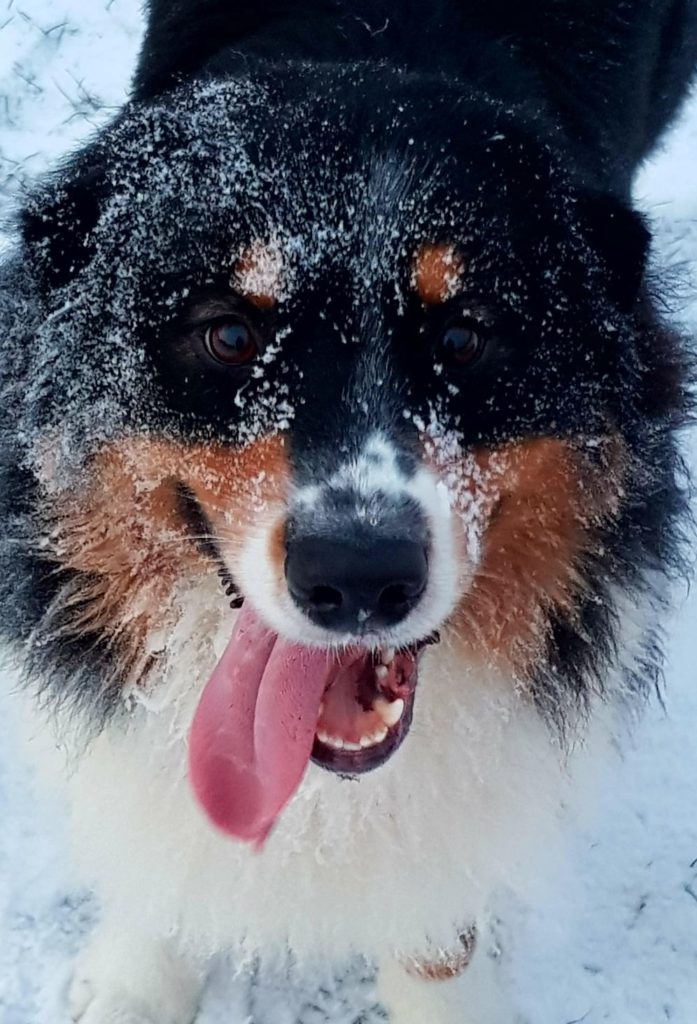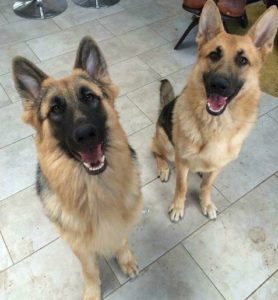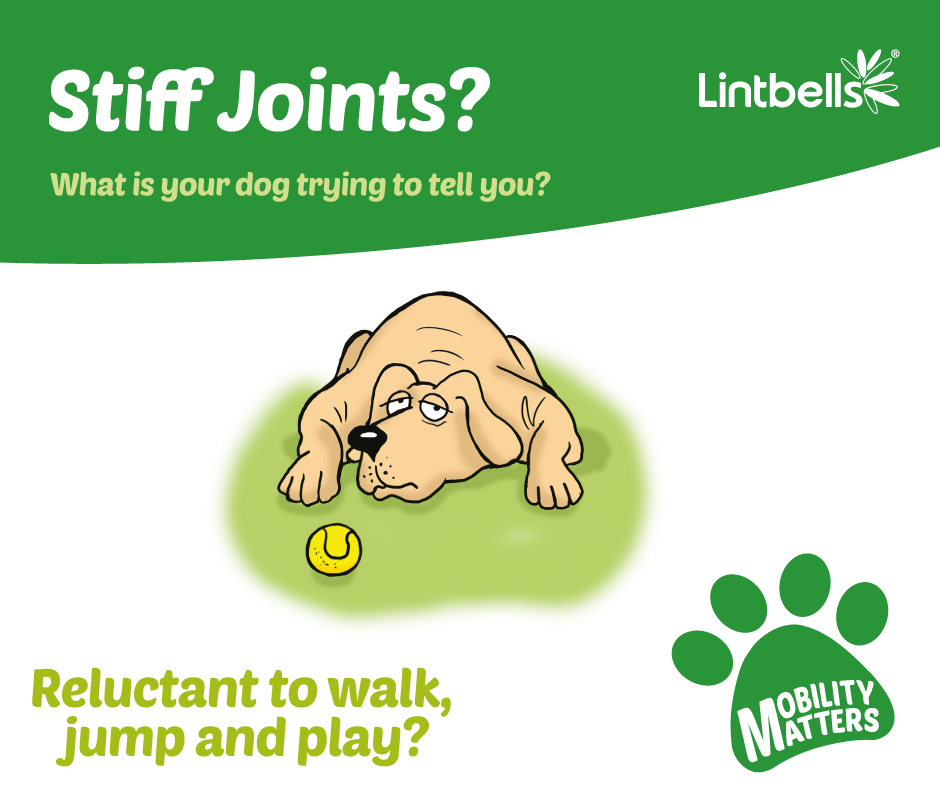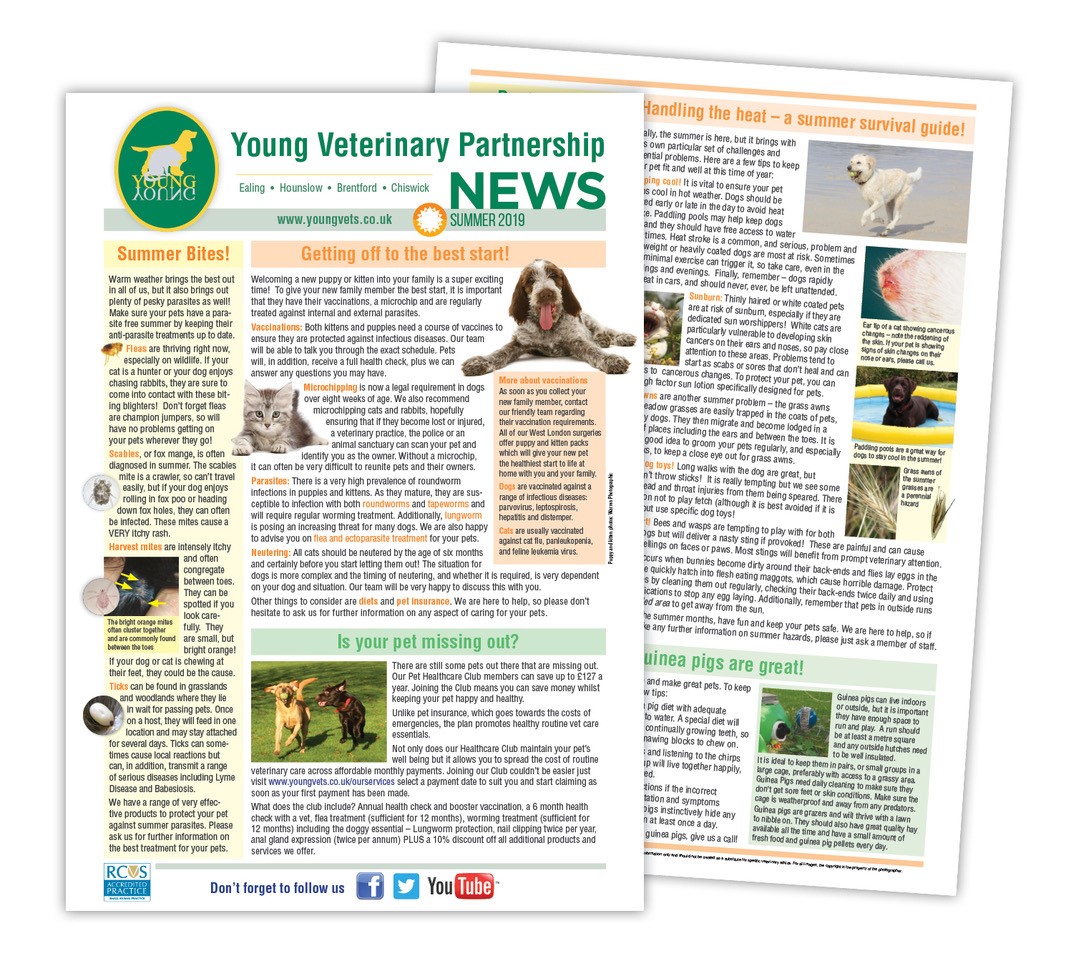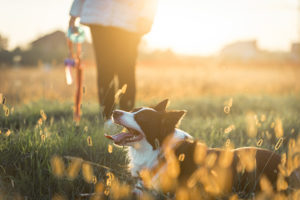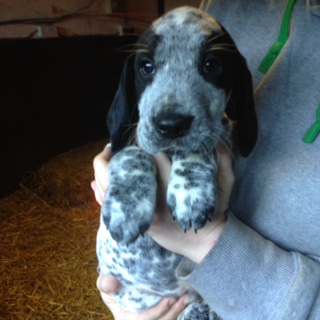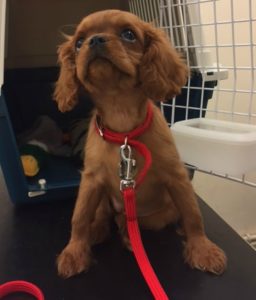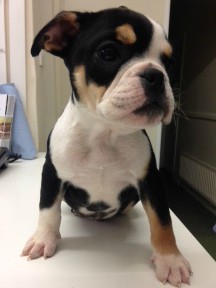
“Dogs are a man’s best friend”
Getting a puppy is a very important and exciting decision. A puppy can add so much joy and companionship to your life. We love seeing puppies here at Young Veterinary Partnership and enjoy, even more so, helping you to look after them as best as possible. When you decide to get a puppy you have to be sure that you can commit time towards exercising it, keeping it company and socialising/training it so it becomes a well-mannered adult dog.
Choosing your puppy:
The Breed: Choosing the appropriate breed for you and your lifestyle is critical. Seeing both parents can help you assess possible future temperament (and future size). Some breeds may be more ‘highly strung” than others, some need more exercise, some need more coat care and grooming than others.
The Breeder:
Make sure your buy from a reputable breeder where the mother is up to date with her vaccinations. The littler should have also been wormed regularly throughout their first few weeks and even had a flea treatment before being re-homed. Ideally they should leave the bitch at around 8 weeks of age (not before). Keeping mother and puppies together up to 8 weeks, has been shown to reduce the risks of behavioural problems developing later. Some breeders may even do a first vaccination and a microchip.
Charities:
A great way of you re-homing. As a policy the puppy has usually had its first vaccinations and is microchipped for you. The charity may even have neutered them, if he/she is old enough. Charities often ask for a small donation towards the adoption.
Make sure that your puppy is fit and healthy when you choose it:
Hips/Elbows/Eyes: The parents of some pedigree litters have to undergo compulsory scoring of their hips (for hip dysplasia), elbows (for elbow dysplasia) or eyes (for cataracts and retinal problems). This reduces the risk of the puppies developing these problems, by only using parents with good scores for breeding. Make sure that the parents’ scores are of an acceptable standard for their breed. Visit www.thekennelclub.org.uk for more information.
Eyes: Bright wide eyes. No discharge.
Nose: Wet nose. No discharge.
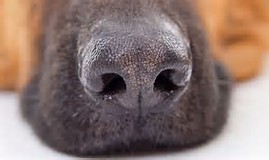
Dogs nose. Picture from Trendhunter.com
Mouth & Teeth: No teeth out of place. Fully erupted. Milk teeth are usually bright white and look shiny.
Weight: A healthy weight where you can feel the ribs but not see them. Look out for signs of a pot-belly as this could indicate a worm burden. This can be easily rectified by a wormer from a vet.
Appetite: A good appetite indicates a healthy hound.
Toileting: Normal urination and defecation. This should be normally formed, no blood in it and not watery. If you can see evidence of worms in the faeces, he will need worming by a vet.
Further information about different dog breeds can be found at www.dogstrust.org.uk
